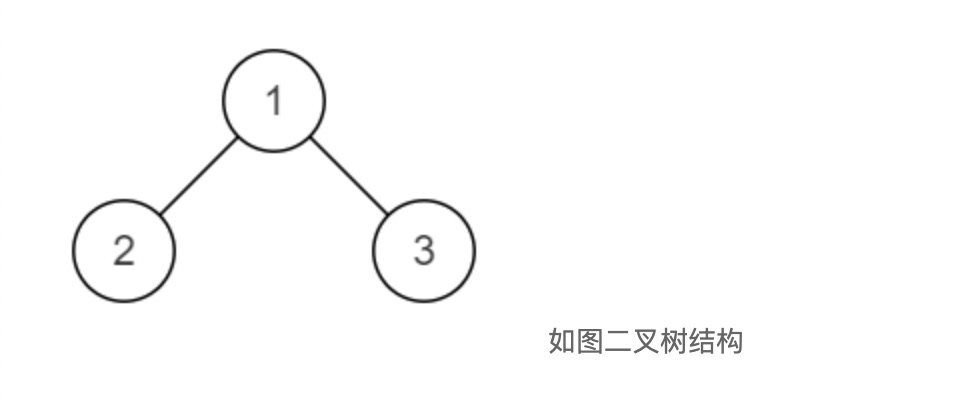给定一棵二叉树,分别按照二叉树先序,中序和后序打印所有的节点。
数据范围:0 <n≤1000,树上每个节点的val值满足: 0<val≤100
要求:空间复杂度 O(n),时间复杂度 O(n)
样例解释:

示例1
输入:
{1,2,3}
返回值:
[[1,2,3],[2,1,3],[2,3,1]]
示例2
输入:
{}
返回值:
[[],[],[]]
备注:
n < 10^6
方法1:递归
class Solution:
def threeOrders(self , root: TreeNode) -> List[List[int]]:
# write code here
pre_res = []
def preprint(root):
if root!=None:
pre_res.append(root.val)
preprint(root.left)
preprint(root.right)
return pre_res
mid_res = []
def midprint(root):
if root != None:
midprint(root.left)
mid_res.append(root.val)
midprint(root.right)
return mid_res
end_res = []
def endprint(root):
if root != None:
endprint(root.left)
endprint(root.right)
end_res.append(root.val)
return end_res
res = []
res.append(preprint(root))
res.append(midprint(root))
res.append(endprint(root))
return res
方法2: 迭代
其核心思想如下:
- 使用颜色标记节点的状态,新节点为白色,已访问的节点为灰色。
- 如果遇到的节点为白色,则将其标记为灰色,然后将其右子节点、自身、左子节点依次入栈。
- 如果遇到的节点为灰色,则将节点的值输出。
- 以上总结为:新白已灰;遇白标灰,右自左依入栈;遇灰值出。
class Solution:
def threeOrders(self , root: TreeNode) -> List[List[int]]:
# write code here
res = []
res.append(self.preprint(root))
res.append(self.midprint(root))
res.append(self.endprint(root))
return res
def preprint(self,root):
res = []
if root==None:return res
white, gray = 0,1
q = [(white, root)]
while q:
color, node = q.pop(-1)
if node is None: continue
if color==white:
q.append((white, node.right))
q.append((white, node.left))
q.append((gray, node))
else:
res.append(node.val)
return res
def midprint(self,root):
res = []
if root==None:return res
white, gray = 0,1
q = [(white, root)]
while q:
color, node = q.pop(-1)
if node is None: continue
if color==white:
q.append((white, node.right))
q.append((gray, node))
q.append((white, node.left))
else:
res.append(node.val)
return res
def endprint(self,root):
res = []
if root==None:return res
white, gray = 0,1
q = [(white, root)]
while q:
color, node = q.pop(-1)
if node is None: continue
if color==white:
q.append((gray, node))
q.append((white, node.right))
q.append((white, node.left))
else:
res.append(node.val)
return res